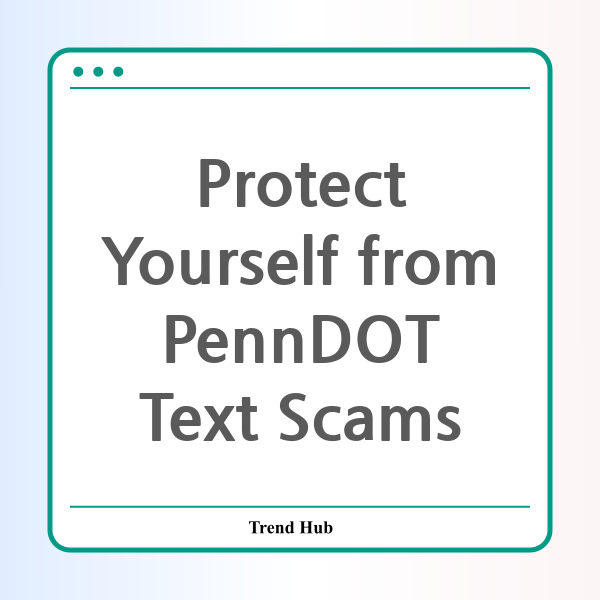* This website participates in the Amazon Affiliate Program and earns from qualifying purchases.

Have you received a suspicious text message claiming to be from the Pennsylvania Department of Transportation (PennDOT)? If so, you’re not alone. Many residents are now reporting a new wave of text message scams designed to trick unsuspecting individuals into disclosing personal and financial information. In an age where digital communication is commonplace, it’s essential to be aware of these scams to avoid falling victim to fraud or identity theft.
The scam messages often threaten individuals with dire consequences for not paying what they claim to be outstanding traffic violations. Commonly, these messages prompt recipients to click on a link where they are directed to a phishing site intended to steal their sensitive information. The Lebanon City and Carlisle police departments have both issued warnings to alert the public about these deceptive messages.
One text stated, "Pennsylvania Motor Vehicles (DMV) Final Notice: Enforcement Penalties Begin on May 31," suggesting that immediate payment was required. However, this is just one example of a multitude of similar scams making their rounds. Likewise, the Pennsylvania courts have reported similar scams where text messages mimic official communications, requesting payments for fictitious traffic tickets, while threatening repercussions such as license suspension and negative impacts on credit scores.
It’s crucial to remember that neither the Pennsylvania DMV nor the courts will send unsolicited texts demanding payment. Aimee Inama, a representative from PennDOT, confirmed that the agency does not send text messages regarding traffic violations or fines. Therefore, if you receive such a message, it is definitely a scam.
Here are some red flags to identify these scam messages:
- Unfamiliar Sender: Always check the sender’s number or email address. If you don’t recognize it, it’s likely a scam.
- Spelling/Grammar Errors: Many scam texts contain typos and grammatical mistakes.
- Urgency: Scammers often use a fake sense of urgency to prompt you into making quick decisions. Be cautious with any message insisting on immediate action.
- Phishing Links: Do not click on any URLs provided in suspicious texts. These are often links to phishing sites that can lead to identity theft.
What should you do if you receive one of these suspicious texts? Here’s a step-by-step guide:
- Do Not Engage: Do not respond to the message or click any links.
- Report It: You should report the scam to your local police department.
- Notify Authorities: Alert the Pennsylvania Office of Attorney General, Bureau of Consumer Protection at (800) 441-2555.
- Spread the Word: Inform friends and family about the scam to help protect them.
In conclusion, staying informed and vigilant is your best defense against the increasing prevalence of scam messages claiming to be from official agencies like PennDOT. By recognizing these fraudulent texts and knowing how to respond, you can protect yourself and your personal information from scammers. Always double-check the messages you receive and take the necessary precautions to safeguard your identity.
Remember, if you’re ever in doubt about whether a communication is legitimate, it’s better to err on the side of caution. Verify with official agencies using their contact information, and never divulge sensitive information to an unknown source.
* This website participates in the Amazon Affiliate Program and earns from qualifying purchases.